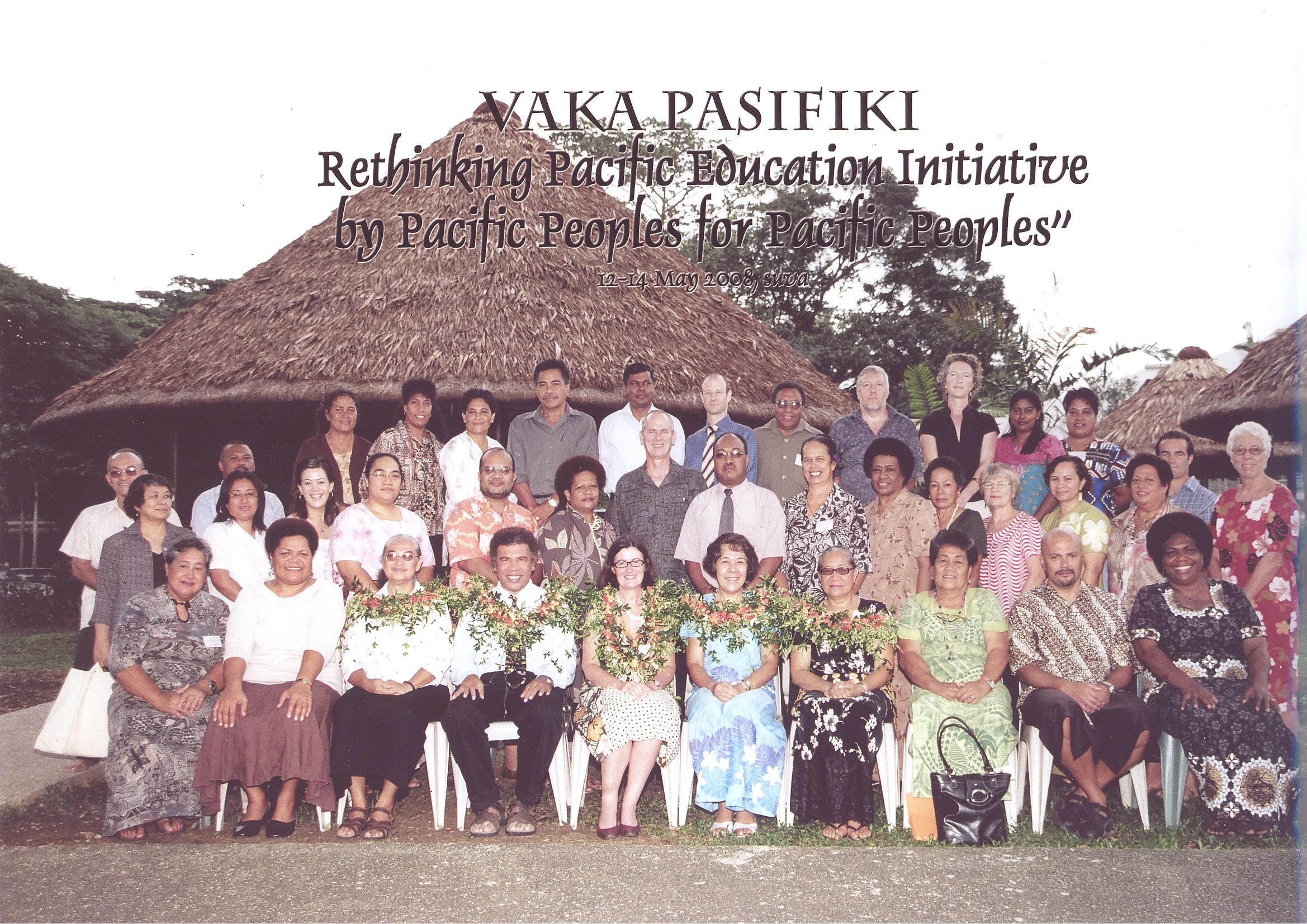Re-thinking Pacific Education Initiative by Pacific Peoples for Pacific Peoples (RPEIPP)
RPEIPP began as an idea in the inaugural Symposium on Researching the Delivery of Aid to Pacific Education of the Research Unit of Pacific Education of the University of Auckland in December 2000. The Symposium noted that despite some 30 years of heavy investments in education by the Pacific countries and by donor organisations, Pacific countries were still struggling with the same issues in education today.
Professor Konai Helu Thaman and Dr Ana Taue’ulungaki of the University of the South Pacific (USP), Dr Kabini Sanga of Victoria University, and Tricia Nally of NZAID in an informal discussion resolved that it would be ideal if Pacific educators could meet without any donors or outsiders to re-think education from Pacific perspectives and world views to complement those promoted by formal education, which in most cases are borrowed from outside the region and are often irrelevant and inappropriate for Pacific contexts and peoples. Thus, was born the Re-Thinking Pacific Education Initiative (RPEI) now re-named RPEIPP, which is still generously funded by NZAID.
The first activity of the Initiative was a meeting of selected Pacific educators, which was held at USP and hosted by IOE in April of 2001. The recommendations of that first meeting were presented to the Forum Education Ministers in May of the same year and the book ‘Tree of Opportunity’ was also one of the main outcomes of that meeting.
From 2001 to 2004, RPEIPP was under the inspirational leadership of Dr Kabini Sanga and Victoria University and during this period many milestones were successfully achieved. In 2005, RPEIPP moved to the Institute of Education (IOE), in the belief that IOE and USP are central to the development and achievement of quality education for Pacific peoples.

RPEIPP Symposium 2008 Group Photo
